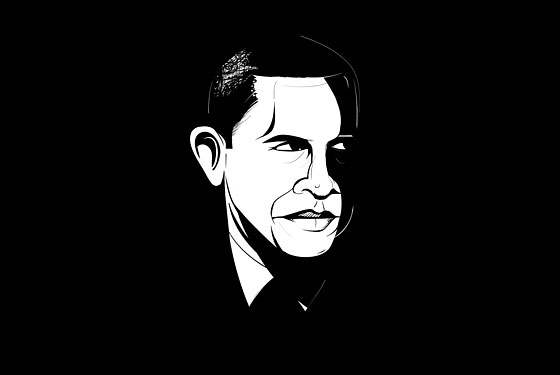
Barack Obama is not unfamiliar with delivering big-stakes, high-pressure, bet-the-farm speeches—but the challenges presented by Wednesday’s State of the Union are of a different kind and order of magnitude than he has ever confronted before. In the wake of the smack-upside-the-head loss of Ted Kennedy’s Senate seat last week in Massachusetts, with its dire implications for health-care reform and dark portents for November’s midterm elections, Democrats in Washington and around the nation will be looking for more from Obama than mere eloquence or even passion and conviction. They will be studying him to see if he grasps the magnitude of his and his party’s peril, and trying to discern what he intends to do about it.
Among the Potomac panjandrum population, the near-universal consensus is that Obama must undertake a serious midcourse correction. That he must regroup his team, recalibrate his agenda, retool his message, reboot his whole presidency. Obama and many of his senior advisers have heard such bleatings before. During the race that put Obama in the White House, Establishment Democrats periodically concluded that his campaign was on the brink of disaster and counseled dramatic changes of tack. In the early fall of 2008, at the peak of Palinmania, Obama’s pal and adviser Valerie Jarrett returned from a trip to New York and informed the candidate that party big shots were freaking out over John McCain’s post-convention surge in the polls. As Mark Halperin and I report in our new book, Game Change, Obama’s response was nonchalant: “Just tell them to calm down.” Campaign manager David Plouffe was even more dismissive of what he liked to describe as Democratic “bed-wetting.”
The ability of Obama and his people to retain their continence when all around them were soiling their shorts was key to their success in 2008. The question in the minds of many Democrats now, however, is whether the Obamans have overlearned the lesson. Last year, as Obama’s standing in the polls weakened and support for health care plummeted, the administration’s stay-the-course posture sometimes came across as less an example of Roger Federerian cool than Alfred E. Neumanish what-me-worryism.
There are already signs that Obama and his squad no longer have their heads buried in the sand; that they realize that, in this populist moment, being perceived as being simultaneously on the side of Big Government and Big Business is politically lethal. The most glaring signal was Obama’s embrace of former Fed chairman Paul Volcker’s call for tough bank reregulation—a plan for which neither of the president’s chief economic officials, Tim Geithner and Larry Summers, had previously evinced a scintilla of support. Indeed, many Democrats are now speculating that one of them (most likely the former) may soon be shown the door. At the same time, the State of the Union will almost certainly include a muscular call for a return to fiscal restraint, perhaps along with an attack on the pork-addled proclivities of Congress.
For Obama to regain his footing, though, will require more than that. One of the greatest puzzles of 2009 is how this most gifted of communicators and his team of savvy message-meisters failed so utterly to provide a compelling explanatory framework for his ambitious policy agenda. Health care, of course, is Exhibit A in this indictment. For all the complaints in some quarters about the performance of Rahm Emanuel, the truth is that the White House chief of staff has played the inside game adroitly. What’s been missing has been equal skill at the outside game, in the form of an overarching argument at once coherent and compelling to the broad electorate—the kind of thing at which both Obama and his message guru, David Axelrod, once seemed to be geniuses.
Hearteningly, Obama seems to understand the point. “What I haven’t always been successful at doing is breaking through the noise and speaking directly to the American people in a way that during the campaign you could do,” he told George Stephanopoulos last week.
Obama’s frustration is evident, and so is a certain wistful nostalgia for the days when he was still seeking the Oval Office instead of occupying it. But if Obama is going to hold on to that office—let alone come close to accomplishing any of his grand and noble objectives—he needs to reclaim the outsider’s mantle he once donned so comfortably. During the campaign, Obama was fond of saying to Axelrod, “This shit would be really interesting if we weren’t in the middle of it.” He’s even deeper in it today. Unless he finds a way to rise above the Washington cesspool he was elected to drain, and soon, the dung will surely drown him.
Have good intel? Send tips to intel@nymag.com.